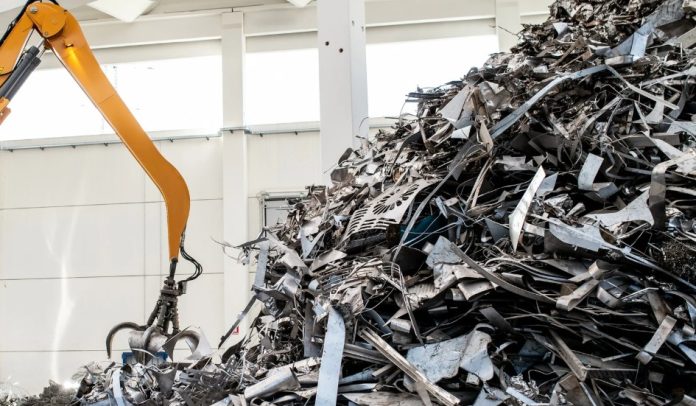Table of Contents
Managing waste may not be the most exciting part of running a business, but it’s one of the most essential. In a world increasingly focused on sustainability, how you handle your commercial waste speaks volumes about your business values, efficiency, and legal awareness.
From navigating regulations to avoiding hidden costs, commercial waste collection presents a range of challenges, but each one can be managed with the right knowledge and systems in place.
In this article, we explore the most common obstacles business owners face and share positive, proactive solutions to help you stay ahead.
What Are the Key Challenges of Commercial Waste Collection Every Business Must Tackle?
Understanding Legal and Operational Responsibilities

One of the biggest challenges in business waste disposal is understanding your legal obligations, and getting them right from the start.
In the UK, all businesses, regardless of size or industry, have a legal duty of care under the Environmental Protection Act 1990. This means you’re responsible for making sure your waste is stored, transported, and disposed of safely and responsibly.
To stay compliant, you must:
- Store waste securely in containers that prevent leaks and pest access
- Only use licensed waste carriers, checking credentials on the Environment Agency’s register
- Keep accurate records, such as waste transfer notes, for at least two years
Even something as seemingly small as putting commercial waste into domestic bins can result in fines or enforcement notices. For example, using local household collections or dumping rubbish at public recycling points, often unknowingly, is considered a breach of duty.
Registering with a professional commercial waste collection service is essential. Reputable providers not only supply appropriate bins and containers but also help with the documentation needed to meet audit and inspection standards.
In busy environments like hospitality, retail, or offices, this kind of support is vital for staying on top of your legal responsibilities.
Common Pitfalls
- Inadequate segregation of waste streams (e.g. recycling, food, general waste)
- Missed collections due to improper scheduling or overfilled bins
- No audit trail or documentation for compliance
Staying compliant isn’t just about avoiding penalties, it’s about being a responsible operator and protecting your business reputation. It also sets the foundation for greener practices and smarter cost control down the line.
Navigating Costs and Contracts

The Real Cost of Waste
Many business owners are surprised by the long-term costs of poorly managed waste. Overfilled bins, unsorted recycling, and inefficient collection schedules can all drive up your bills. Worse still, unclear contracts with waste service providers may contain hidden fees or automatic renewal clauses.
What to Watch For?
- Overcharging on volume: If your bins are regularly too full, you may be charged for excess weight.
- Rigid contracts: Lack of flexibility in collection frequency can mean paying for services you don’t fully use.
- Lack of transparency: Some providers don’t clearly break down costs or include recycling data.
To avoid this, compare providers carefully, ask for a full cost breakdown, and choose a service that aligns with your actual waste output. It may even be worth renegotiating your contract if your needs have changed since signing.
Smart Solutions
- Conduct a simple waste audit to track what you’re throwing away and how often
- Switch to providers that offer tailored plans and flexible scheduling
- Reduce overall waste to lower costs (e.g. using refillable supplies or minimising packaging)
Thinking beyond the bin, these changes contribute to broader sustainability efforts, which are becoming increasingly important for long-term business success. Many forward-thinking companies are now seeing how embracing greener practices can lead to improved brand image, customer trust, and even operational efficiency.
Building a Culture of Accountability and Sustainability

People Make the System Work
Even the best waste management plan can fall flat if your team doesn’t buy in. Confusion about what goes in which bin, or lack of care in disposal routines, often leads to contamination, which means recyclable items go to landfill.
Creating a culture where staff understand the system and feel responsible for it is key to success. This includes:
- Clear signage and colour-coded bins
- Regular team reminders or brief training
- Open discussions about sustainability efforts
When your employees understand the why behind waste management, they’re more likely to follow the how.
Championing Your Green Credentials
Customers increasingly want to support businesses that prioritise the environment. By showing that your company is committed to responsible waste management, you enhance your brand image and build trust.
Consider sharing your sustainability efforts in your marketing or even applying for green certifications. Not only will this give you something to be proud of, it can also set you apart from competitors.
Turn Challenges into Opportunities
While commercial waste collection may present its fair share of challenges, it’s also an area full of potential. With the right knowledge and partners, you can turn a routine operational task into a tool for efficiency, savings, and sustainability.
For business owners, staying proactive is key. Review your systems regularly, keep your staff engaged, and don’t be afraid to seek expert advice. By tackling waste head-on, you’re not just clearing out the bins, you’re building a more responsible, resilient business.


